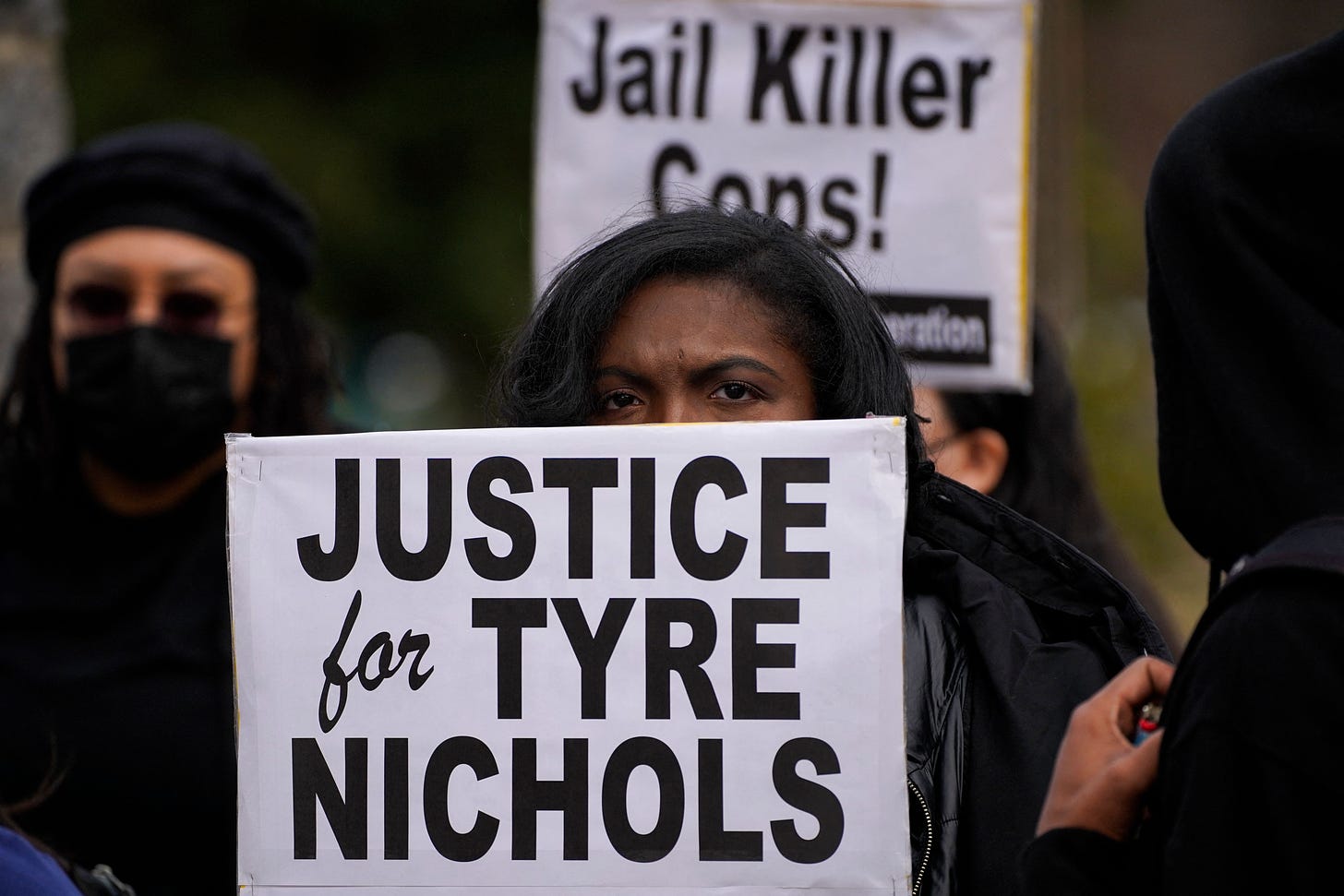The tragedy in Memphis reverberates across the nation in a moment of reckoning. Amidst the multiple contextual overlays — historical, racial, criminal, legal — we cannot lose track of the personal loss at the epicenter.
Tyre Nichols is dead.
He should be alive.
He was murdered by police, according to prosecutors.
The evidence so far is that Nichols’ death was caused by what the police did to him during a street arrest. Much of it was captured on video, which will now be evidence in murder cases for the police officers involved. We should hope that the judicial system delivers an outcome that represents justice, guided by the facts and the law.
It is to be expected that a case so violent, deadly, and grimly documented would be a touchstone for an America that is wrestling with its identity. It sits in the middle of many swirling social currents that stretch back to our nation’s founding and also are propelled by questions that have always confronted the organization of civilization. The ancients wrestled with these basic questions. So has every society since. Including, of course, our own.
How do we structure our society? Who is given power? How is power to be constrained? How do we assess accountability?
In America, we must continue to face the injustices around race that were written into our founding documents. That this particular case doesn’t neatly conform to a binary narrative — both the victim and the officers were Black — forces us to confront complicated truths. As much as we might seek simple solutions and tidy delineations between good and bad, right and wrong, the real world doesn’t work that way.
In seeking a country with less violence, fewer wrongful deaths at the hands of the police, safer communities, and more accountability, we should look with suspicion on those who say they have all the answers.
Among the many developments that went tragically wrong in Memphis, a fraught interaction was made worse because those inflicting violence failed to hold onto the common bonds of humanity. It was a particularly horrendous manifestation of undercurrents that many of us feel daily — the quilt of diversity that exemplifies our nation is fraying at the seams.
We are living through an epidemic of distrust, anger, and isolation. These have always been the hallmarks of the darker side of human action and thought. But our nation — as conceived in its highest ideals — should aspire to better. Toward this noble goal, we have examples from our past of progress. But there is no room for complacency or self-satisfaction. As these recent events highlight once more, we clearly have a lot more work to do.
A more perfect union is one that will require unending toil. Instability, inequality, and intransigence easily take root without constant attention.
We can reflect in sadness on all that ails our communal sense of purpose. Unfortunately, it often takes great tragedies to refocus our attention. The response thus far suggests America has taken notice and we might be entering a new era of greater accountability over law enforcement’s use of force. Perhaps we might follow the lead of another field where public safety is at stake: civil aviation. When a plane crashes, the catastrophe is followed by rigorous self-examination over what systems failed and who was to blame. We need that same spirit around how the police interact with the public, especially with members of marginalized groups.
At the same time, we must give space for the Nichols family to grieve. We must make sure that justice is served as the full picture comes into focus. We should demand that all actions between law enforcement and the public be scrutinized, especially around the appropriate use of force. We should also recognize the need for communities to be kept safe and promote systems for better policing.
The shock, outrage, and anger that are pulsing through America can hopefully be channeled toward progress and reckoning. We need to wrestle with all the complexities this tragedy embodies before we can even talk about healing. This is not the first time America has been forced to look deep within itself and confront its problems. And it won’t be the last.
In the past, these moments have sometimes reoriented our nation toward a path of a more equitable future. Let us hope we can muster something hopeful out of this tragedy.
Note: If you are not already a member of the Steady community, please consider subscribing. We always appreciate you sharing our content with others and leaving your thoughts in the comments.




Sadly these police uniforms with testosterone were around in the 70s. I was married to one. He bragged about beating drunk Black men with his police mag light, a very heavy baton, leaving them unconscious. This disgusted me. Our marriage did not survive. This “hot dog” attitude is not new. What IS new is a female police chief who fired these cowboys and refused to protect them as many police departments do. Good for her.
My family is black, biracial, and white. We are feeling this death very personally. My 16-year-old granddaughter and her father wept and grieved after they watched the video. I felt physically sick. My confidence in and trust of law enforcement writ large is at a very low point. I am not sure what kind of situation would motivate me to call for their aid and bring them to my home. I fear for my family members every single day. Right now, America feels like a very dangerous place to live. How do we fix that? Can we fix that?